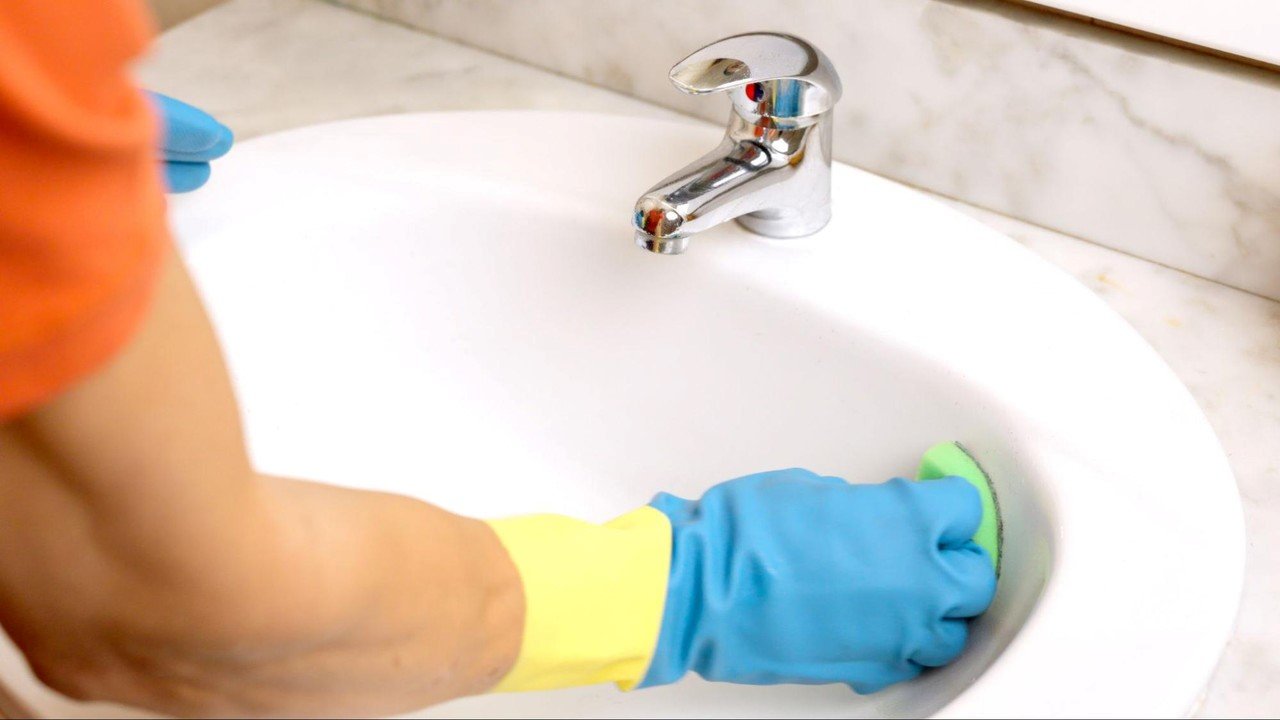Life Style
Why Does My Kitchen Sink Smell? And How to Fix It

A bad smell coming from your kitchen sink is one of those household nuisances that’s hard to ignore – and for good reason. It can quickly make your kitchen feel unhygienic, no matter how clean it looks on the surface. If you’re experiencing persistent odours or blocked drains in Burgess Hill, it’s worth investigating sooner rather than later.
In many cases, unpleasant sink odours are caused by something simple, like leftover food particles trapped in the drain. But sometimes, persistent smells can point to more serious issues with your plumbing system – such as a blocked pipe, a dry U-bend, or even underlying damage within your drainage network.
Whatever the cause, it’s important not to dismiss that unpleasant whiff. Identifying the source early and taking the right steps can save you time, money, and a lot of frustration down the line. For residents in the Burgess Hill area, DrainBoss offers professional, fast-response drainage services backed by over 20 years of experience – including expert diagnosis and lasting solutions for recurring kitchen sink smells.
Common Reasons Your Kitchen Sink Might Smell
If you’ve noticed an unpleasant odour coming from your kitchen sink, it’s usually a sign that something is lingering inside the drainage system. Whether it’s leftover food, grease, or even a hidden plumbing issue, understanding the root cause is the first step towards fixing it. Below are the most common reasons your kitchen sink might be smelling – and why it shouldn’t be ignored.
Food debris stuck in the pipes
One of the most common reasons for a smelly sink is rotting food trapped in the pipework. Even if you use a sink strainer, small bits of food often slip through and cling to the inside of the drain. Over time, this organic material breaks down and produces foul odours – especially in warm conditions.
The smell can worsen if the debris becomes compacted or stuck in the U-bend, where water flow is slower. This build-up not only creates a bad smell but can also lead to blockages if left untreated. Regular rinsing with hot water may help, but once decomposition has begun, more thorough cleaning may be needed.
Fats, oils and grease (FOG) build-up
FOG – fats, oils, and grease – may appear liquid when hot, but they solidify as they cool, clinging to the inside of your pipes. As these substances accumulate, they create a sticky film that traps food particles, soap residue, and other debris, accelerating bacterial growth and producing strong, unpleasant smells.
This type of build-up is particularly common in kitchen sinks due to cooking oils, buttery sauces, and fatty leftovers being washed down the drain. Unfortunately, standard hot water rinses are usually not enough to break down solidified grease – and chemical cleaners may only offer temporary relief.
Dry or blocked P-trap (U-bend)
The P-trap (or U-bend) beneath your sink is designed to hold a small amount of water, which acts as a barrier to prevent sewer gases from rising into your kitchen. If the trap dries out – such as after a long period of disuse – this protective seal is lost, allowing foul-smelling gases to escape.
Similarly, a blockage or partial obstruction in the U-bend can reduce the water level or cause stagnant waste to sit within the bend. In both cases, odours may develop and persist until the trap is refilled, cleaned, or properly repaired. A leaky U-bend can also compromise the water seal and should be checked regularly.
Bacterial biofilm
Biofilm is a slimy layer of bacteria that forms on the inner surfaces of pipes, especially when organic matter like food particles or soap residue is present. This microbial layer produces a distinctive musty or sour smell that can linger even after flushing the sink with water.
Because biofilm adheres to the pipe walls, it’s often resistant to casual cleaning methods. Simply pouring water down the drain won’t remove it. It may require the use of enzyme cleaners, natural disinfectants like vinegar and baking soda, or even mechanical cleaning to break it down fully.
Sewer gas intrusion
Sometimes, the smell coming from your kitchen sink isn’t due to waste within the sink at all – it’s caused by gases travelling up from deeper within your drainage system. If there’s a fault such as a missing trap, cracked pipe, or poorly sealed connection, these gases can escape into your kitchen and create a strong, sulphurous smell similar to rotten eggs.
Sewer gas isn’t just unpleasant – it can also be hazardous in large concentrations. While rare, it’s important to treat this type of issue seriously. If you’ve ruled out local blockages and still smell gas-like odours, it’s time to investigate further or consult a professional.
Simple Ways to Eliminate Sink Odours
Once you’ve identified the likely cause of the smell, there are several easy and inexpensive methods you can try at home to clear it. Many of these solutions use items you probably already have in your kitchen cupboard. While these techniques may not resolve deeper plumbing issues, they’re a great first step and often effective for dealing with everyday sink odours.
Here’s a quick comparison of common home remedies:
| Method | What You Need | Best For | How Often to Use |
| Boiling water flush | Kettle or pot of boiling water | Light grease build-up and mild smells | After greasy washing up |
| Baking soda + vinegar | ½ cup baking soda, 1 cup white vinegar | Neutralising smells and clearing minor debris | Weekly or as needed |
| White vinegar soak | 250ml white vinegar | Killing odour-causing bacteria | Every 1–2 weeks |
| Lemon and salt scrub | Half a lemon, coarse salt | Fresh scent and mild abrasive cleaning | Monthly or as a refresher |
| Overflow & guard cleaning | Bottle brush or toothbrush, soapy water or vinegar | Hidden build-up in overflow holes and guards | Monthly |
These methods are safe, eco-friendly, and budget-conscious – making them perfect for regular maintenance. However, if odours return quickly after treatment, it could indicate a deeper issue that needs professional attention.
What If the Smell Keeps Coming Back?
If you’ve tried all the usual home remedies but that unpleasant odour keeps returning within a day or two, it’s likely there’s a deeper issue within your drainage system. While surface-level smells can often be managed with vinegar, baking soda, and hot water, persistent odours suggest that the problem lies further down the line.
Ongoing smells may be caused by built-up waste in the pipework, poorly installed or damaged plumbing, or hidden blockages that are difficult to reach without specialist tools. In some cases, the issue could be due to a misaligned pipe gradient, cracked joints, or even tree root intrusion – all of which can trap waste and allow gases to build up.
Warning signs to look out for include:
- Slow-draining water that lingers in the sink basin
- Gurgling noises coming from the plughole or pipes after draining
- Standing water under the sink or in outdoor gullies
- Recurring smells that return shortly after cleaning
If you notice any of these symptoms, it’s a good indication that the issue won’t be resolved with DIY methods alone and may require a more thorough inspection.
Professional Drainage Solutions
When home remedies fail to eliminate persistent sink odours, it’s often a sign that something more serious is going on beneath the surface. In these cases, calling in a professional drainage specialist can make all the difference – not only to get rid of the smell but to prevent more costly problems from developing later on.
Here are some of the most effective professional solutions commonly used to diagnose and fix deeper drainage issues:
CCTV drain survey
This involves feeding a small, high-definition camera into your pipework to inspect the condition of your drains from the inside. It’s a quick and non-invasive way to identify hidden blockages, cracks, root ingress, or structural defects that may be causing odours. A full report and video footage can help pinpoint the exact issue without unnecessary digging.
High-pressure water jetting
For stubborn grease, sludge, or hard-to-reach blockages, high-pressure water jetting is often the most effective solution. This technique blasts powerful streams of water through the pipes to clear build-up and restore proper flow. It’s ideal for removing deep-rooted debris that household cleaners can’t shift.
Pipe relining (no-dig repair)
If your drainpipes are cracked or damaged, modern trenchless repair methods such as pipe relining can restore structural integrity without excavation. A resin lining is inserted and cured inside the existing pipe, sealing any leaks or fractures and preventing further ingress of roots or waste material. It’s fast, durable, and causes minimal disruption.
Routine maintenance
In both homes and commercial kitchens, prevention is often the best cure. Scheduling routine drain cleaning and inspections can help you avoid repeat problems. Professional maintenance removes early build-up before it causes odours or blockages, saving you time, stress, and money in the long run.
How to Prevent Sink Smells in the Future
Keeping your kitchen sink fresh doesn’t have to be complicated. By following a few simple habits, you can significantly reduce the chances of unpleasant smells returning:
- Scrape off food waste before washing dishes
Avoid rinsing food scraps down the drain. Instead, dispose of them in the bin or compost before washing up. - Never pour fats, oils, or grease down the sink
Grease solidifies in your pipes and traps other debris, which leads to smells. Let it cool and throw it away in the rubbish. - Use a drain strainer or sink basket
This inexpensive tool catches food particles and keeps them out of your pipes. Empty and rinse it regularly. - Flush with boiling water after heavy use
Pouring boiling water down the plughole helps break down small amounts of grease and clears residue from the pipe walls. - Run water in seldom-used sinks
Infrequently used sinks can develop dry P-traps, allowing sewer gases to escape. Run the tap now and then to keep the trap filled. - Book routine professional maintenance
A regular check-up from a drainage expert can catch issues early, keeping your system clean, clear, and odour-free in the long term.
By taking a proactive approach, you’ll keep bad smells at bay and help extend the life of your plumbing. Prevention is almost always easier – and cheaper – than a full repair.
Conclusion
A bad smell coming from your kitchen sink isn’t just an everyday annoyance – it can be a sign of deeper issues within your drainage system. While quick fixes like hot water or baking soda may offer temporary relief, persistent odours often point to underlying problems that require proper attention. Addressing the issue early can help you avoid more serious and costly repairs later on.
Whether you’re dealing with a smelly sink in Burgess Hill, blocked drains in Crawley, or drainage issues in areas like Horsham, Littlehampton, or Pease Pottage, professional help is never far away. DrainBoss has over 20 years of experience providing reliable, no-call-out-fee services across West Sussex, including CCTV surveys, jetting, and long-term solutions for stubborn drainage problems.
-

 Celebrity1 year ago
Celebrity1 year agoWho Is Mallory Plotnik?: The Untold Story of Phil Wickham’s Wife
-

 Celebrity12 months ago
Celebrity12 months agoWho Is Allison Butler?: The Life and Influence of Kirk Herbstreit Wife
-

 Celebrity12 months ago
Celebrity12 months agoMeet Christina Erika Carandini Lee?: All You Need To Know Christopher Lee’s Daughter
-

 Celebrity11 months ago
Celebrity11 months agoWho Is Rebecca Sneed?: All You Need To Know About Lyle Menendez’s Wife
















